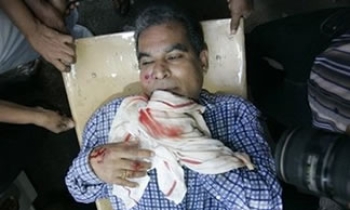New Delhi: The Supreme Court Thursday sought reactions from the government, The Times of India and Hindustan Times, on a petition questioning the publication of titillating materials in the two newspapers.
A three-member bench comprising Chief Justice R.C. Lahoti and judges G.P. Mathur and P.K. Balasubramanyan issued notices to the government and the newspapers after the petitioner drew the court's attention to publication in the press, particularly the two newspapers, of obscene photographs, articles on pornography, SMS jokes and sex education.
The court also issued notices to the Press Council of India, Press Trust of India and United News of India.
Petitioner Ajay Goswami said his petition involved substantial questions of law of private and public importance on the fundamental right of citizens regarding freedom of speech and expression as enshrined in the constitution.
He said he was aggrieved the freedom of speech and expression enjoyed by the newspaper industry was not in balance with steps to protect children from harmful and disturbing materials.
Goswami said with the advent of commercialism and with the aim of boosting circulation, numerous attempts were being made by newspapers to cater to prurient interests of the public.
Newspapers were publishing titillating materials. "At times the photographs accompanying them are certainly distasteful. The jokes published are vulgar, cheap and are only meant to titillate the grey cells in the brain," he said.
"All this is certainly not in the interest of physical and psychological well being of minors."
Goswami contended the contents of such articles and literature were such that minors needed to be shielded from the influence of literature that might not be obscene by adult standards.
He said notwithstanding regulations framed by the Press Council of India, the press was continuing to publish materials that catered to prurient interests.
Goswami sought a direction to the government and the Press Council for laying down rules and regulations to ensure that minors were not exposed to sexually explicit material, whether or not the same was obscene or was within the law, without the express consent of parents, guardians or experts in sex education.
He also wanted the government and Press Council to constitute an expert committee to look into the problem of unwanted exposure to minors through the press and to lay down appropriate regulations.









